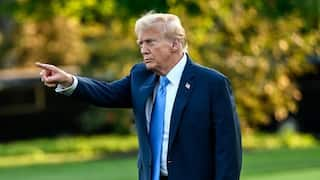'What Is Wrong About Having A Difference In Perception?': CJI Chandrachud Responds To Law Min Rijiju On Collegium
Chief Justice of India D Y Chandrachud defended the Collegium system of judges nominating judges, which has long been a source of contention between the government and the judiciary.

Not every system is perfect, but this is the best system available, Chief Justice of India D Y Chandrachud stated on Saturday while defending the Collegium system of judges nominating judges, which has long been a source of contention between the government and the judiciary.
The CJI stated at an event that the judiciary must be protected from outside influences if it is to be independent.
"Not every system is perfect, but this is the best system we've developed. But, the objective was to preserve the independence of the judiciary, which is a fundamental value. If the judiciary is to remain independent, it must be protected from extraneous influences," according to Justice Chandrachud.
Not every system is perfect but this is the best system we have developed: CJI DY Chandrachud on Collegium system of appointing judges
— Press Trust of India (@PTI_News) March 18, 2023
The CJI also responded to Law Minister Kiren Rijiju, who expressed his dissatisfaction with the Supreme Court Collegium for divulging the government's reasons for not approving the names proposed by it for appointment as judges of constitutional courts.
"What is wrong about having a difference in perception? But, I have to deal with such differences with a sense of robust constitutional statesmanship. I do not want to join issues with the law minister, we are bound to have differences of perceptions," the CJI said, PTI reported.
Rijiju has been outspoken in his opposition to the Collegium system, even calling it "alien to our Constitution" at one point.
According to Justice Chandrachud, the government has no influence over how cases are decided.
"No one has ever told me how to decide a case in my 23 years as a judge. The government is not putting any pressure on anyone. "The Election Commission's decision demonstrates that there is no pressure on the judiciary," CJI said.
The Supreme Court recently ruled that the President will appoint the Chief Election Commissioner and election commissioners on the advice of a committee comprised of the Prime Minister, the Leader of the Opposition in the Lok Sabha, and the Chief Justice of India.
(With Inputs From PTI)
Related Video
Indore Water Crisis : Mayor Helpline Complaints Ignored, 15 Deaths Linked to Negligence





































